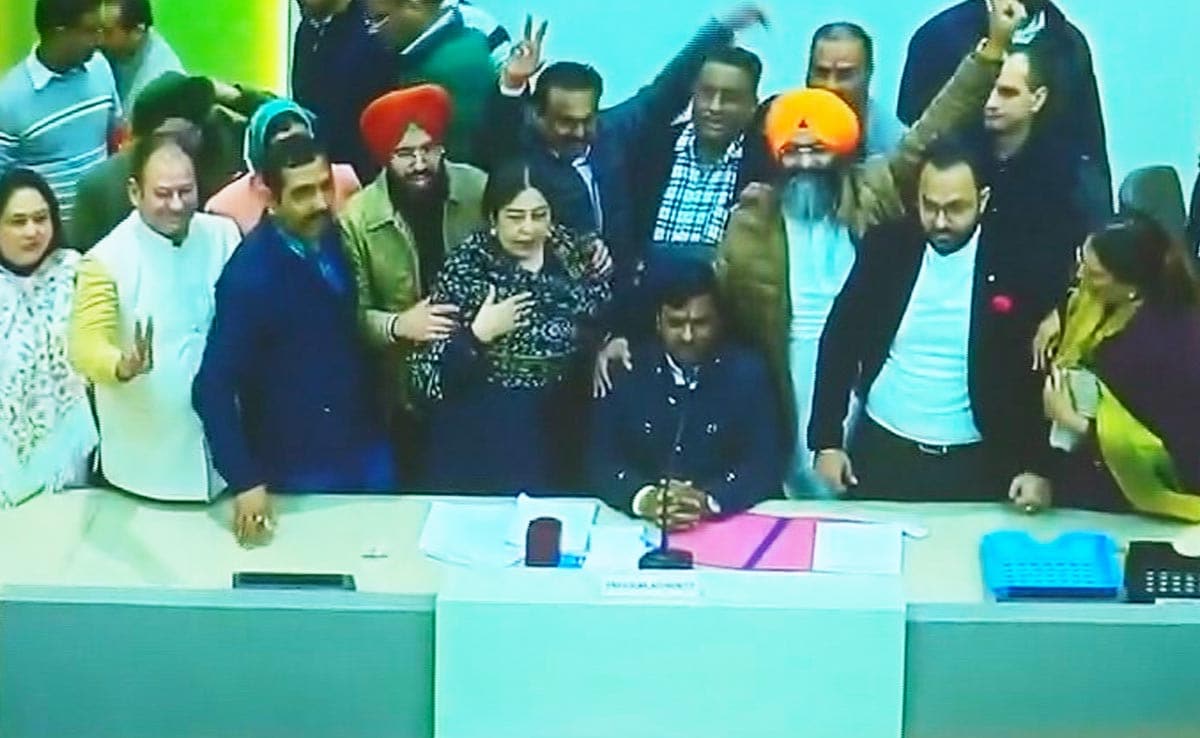In a historic decision, the Modi government has lifted a 58-year-old ban on government employees participating in the activities of the Rashtriya Swayamsevak Sangh (RSS). The prohibition, originally enacted in November 1966 during Prime Minister Indira Gandhi’s tenure, was officially removed on July 9, 2024. Congress leaders shared a copy of the Department of Personnel and Training’s (DoPT) order on social media, expressing their dissatisfaction with the move.
The DoPT’s office memorandum dated July 9 stated, “The undersigned is directed to refer to the OM No.3/10(S)/66-Estt. (B) dated 30.11.1966, OM No. 7/4/70-Est. (B) dated 25.07.1970, and OM No. 15014/3(S)/80-Estt. (B) dated 28.10.1980 on the above subject. The aforesaid instructions have been reviewed and it has been decided to remove the mention of Rashtriya Swayam Sewak Sangh (R.S.S.) from the impugned OMs dated 30.11.1966, 25.07.1970, and 28.10.1980. This issues with the approval of the Competent Authority.”
Congress leader Jairam Ramesh took to social media platform X to justify the 1966 ban and claimed that the Modi government lifted it after relations between the BJP and RSS had soured. He referred to historical instances where the RSS had faced bans, including after the assassination of Mahatma Gandhi and during the Emergency imposed by Indira Gandhi. Ramesh criticized the decision, suggesting it was politically motivated.
The 1966 ban was imposed following the RSS-backed Cow Protection/Anti-Cow Slaughter Movement on November 7, 1966, which resulted in a violent crackdown by the government. The ban equated the RSS with the Islamic extremist group Jamaat-e-Islami, restricting government employees from participating in their activities under the Central Civil Services Conduct Rules. This move was seen by many as an attempt to curb the growing influence of the RSS, which ideologically opposed the Congress party.
The Congress party has a history of imposing bans on the RSS. After Mahatma Gandhi’s assassination in 1948, the RSS was initially banned but later reinstated after assurances of good behavior. During the Emergency (1975-1977), the RSS was banned again as part of a broader crackdown on dissenting organizations. Another ban was imposed during the Narasimha Rao government after the demolition of the Babri structure in 1992.
The decision to lift the 1966 ban has been framed by the Modi government as a step towards recognizing the democratic rights of free association and acknowledging the RSS’s contributions to nation-building. Critics, however, argue that this move could allow political bias to infiltrate the bureaucracy and compromise its impartiality.
This lifting of the ban is seen as part of a broader trend where BJP-ruled states have revoked similar prohibitions. In 2000, Gujarat CM Keshubhai Patel lifted the ban on state government employees participating in RSS activities. In 2006, Madhya Pradesh CM Shivraj Singh Chouhan followed suit, and in 2008, Himachal Pradesh CM Prem Kumar Dhumal did the same.
As the debate continues, the move to lift the ban reflects the ongoing ideological battle between the BJP and Congress, with each party using historical and contemporary events to justify their positions.
Discover more from The Doon Mozaic | द दून मोज़ेक
Subscribe to get the latest posts sent to your email.



